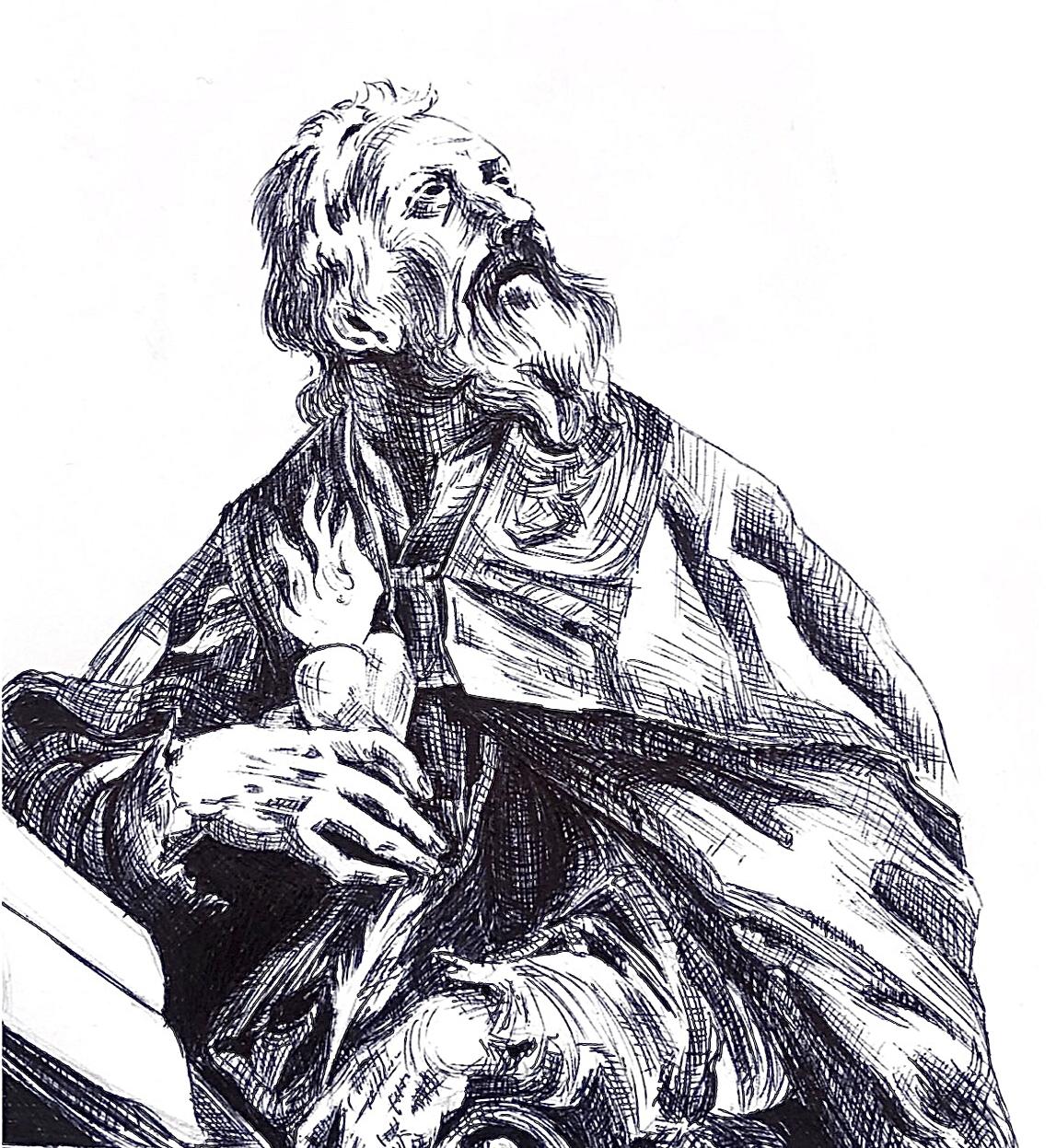EMORY UNIVERSITY’S JOURNAL OF CHRISTIAN THOUGHT












ACKNOWLEDGEMENTS



























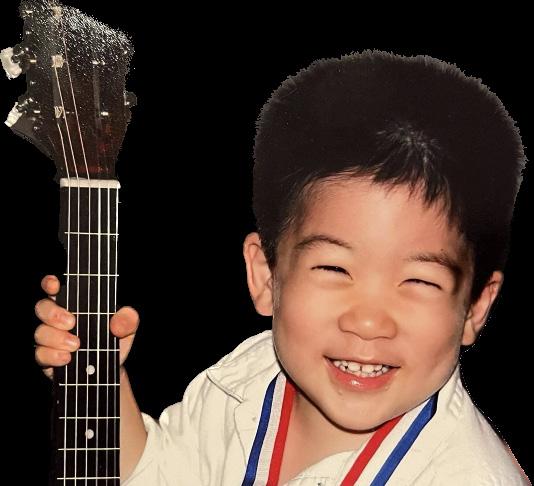


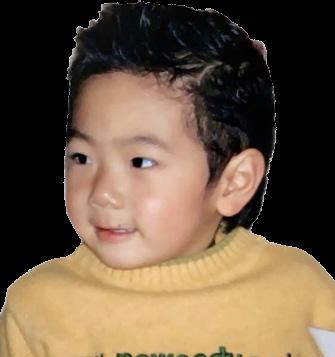

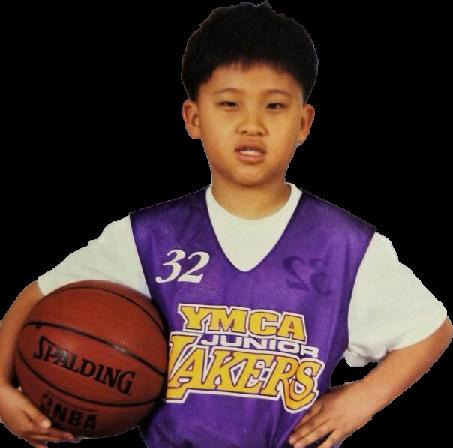
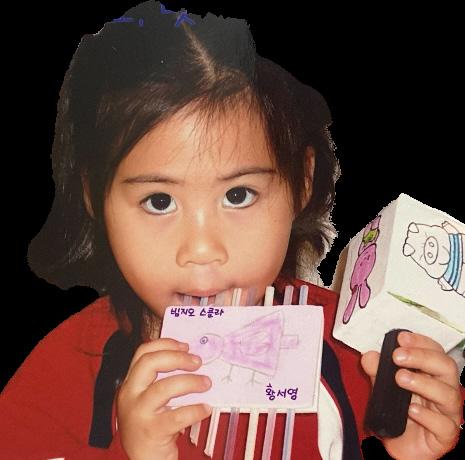




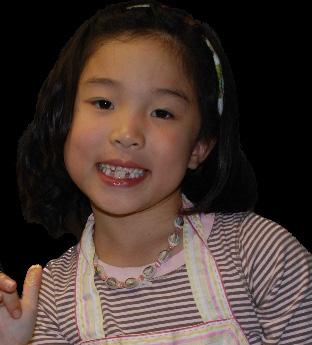
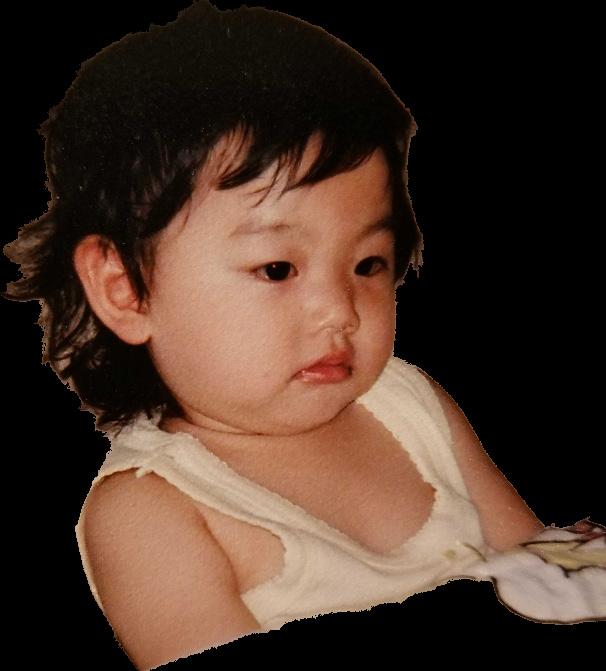
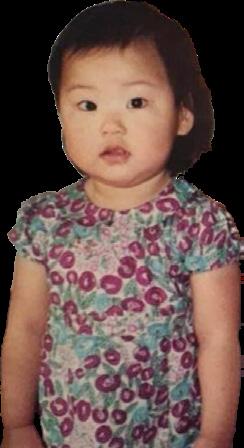
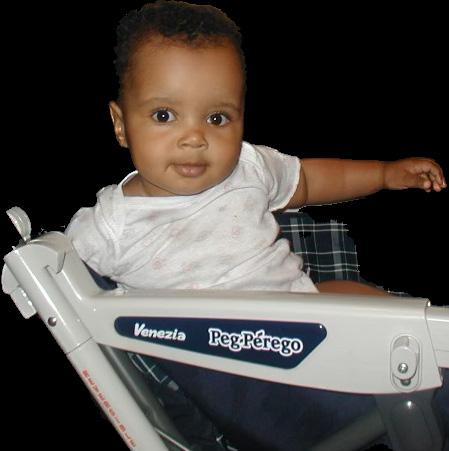
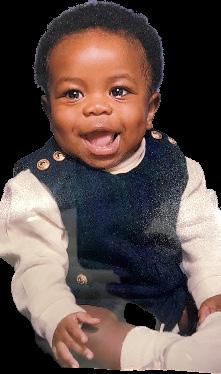
 Ryan PaikCreative Staff
Christopher Lawrence Staff Writer Ella Lavelle Staff Writer
Gabi Kim Managing Editor Emma Lee Executive Editor
Ulia Ahn Creative Director
Abigail Yi Staff Writer
Kevin Kim Editor-in-Chief Daniel Bell Staff Writer
Saeyeon Ju Social Media Chiar
Sharon Hwang Outreach Chair Jacob Choi Treasurer
Sameul Salameh Staff Writer
Carnes Mathis Staff Writer
Joonha Ko Staff Writer
Brian Tsai Staff Writer
Ryan PaikCreative Staff
Christopher Lawrence Staff Writer Ella Lavelle Staff Writer
Gabi Kim Managing Editor Emma Lee Executive Editor
Ulia Ahn Creative Director
Abigail Yi Staff Writer
Kevin Kim Editor-in-Chief Daniel Bell Staff Writer
Saeyeon Ju Social Media Chiar
Sharon Hwang Outreach Chair Jacob Choi Treasurer
Sameul Salameh Staff Writer
Carnes Mathis Staff Writer
Joonha Ko Staff Writer
Brian Tsai Staff Writer

Dear Reader,
Who are you? Where did you come from? Why are you here? These are questions that all of us have asked ourselves at some point in our lives. Yet in the midst of the chaos and confusion of this world, we rarely have time to reflect and dwell on the path that led us to the people we became. While we have forgotten the many twists and turns that life presents to us, we can distinctly remember principal moments of change: a starting point, a new beginning, an origin.
Simply put, everyone has their own origin story. Whether it’s our earliest childhood memory, the first house we lived in, or a catalyzing event that shaped who we are, the starting point of any journey sheds light onto the path lying ahead of it. Likewise, when the path becomes so long and winding and we forget where we’re going, the beginning can serve as a reminder for what we’re walking towards.
John 1:1 says “In the beginning was the Word, and the Word was with God, and the Word was God.” While each of us began our lives on earth differently, as Christians, we somehow came to recognize the original beginning: the new life we have through Jesus Christ.
As In Via itself enters a new chapter, the theme of In Via Volume 3, Number 1 is Origin. As you read and interact with the pieces in this issue, we hope that you can find comfort, wonder, and peace in the love that was always there for you.
Kevin Kim Editor-in-Chief
We all start somewhere. Each and every one of us has an origin. We spend nearly our entire lives reflecting back on that origin, thinking of our favorite childhood memories, talking to old childhood friends, or even interacting with our parents and grandparents. For most of us, they’re a part of our origin, our earliest memories, the points in life we tend to look upon most fondly. We hold the people who shaped us, environments that changed us, and challenges that sculpted our values, near and dear to who we are. As a Christian, or even a curious mind, one can’t help but explore the questions of our origin. Like all things, Christianity has an origin. It begins with Jesus, the apostles, and the church. To understand Christianity, we must understand our origins and the truth of the apostolic faith.
“In the beginning, was the Word, and the Word was with God, and the Word was God… And the Word was made flesh, and dwelt among us” (John 1:1, 1:14). The Word is Jesus Christ, and the Word spreads like a “sweet fragrance of his knowledge” (2 Corinthians 2:14). That fragrance carried from Jerusalem to Antioch and from Constantinople to Alexandria. It was in Antioch, ancient Syria, or modern-day Turkey, where “the disciples were first called Christians” (Acts 11:26). Church tradition maintains that the Patriarchate of Antioch was founded by Saint Peter the Apostle
in 34 AD. Peter was either followed or joined by the Apostles Paul and Barnabas, who preached there to both Gentiles and Jews, spreading the Christian faith to a wide variety of people and regions.

The Christian faith began as an apostolic mission. Of course, we understand it was established by Christ himself, for he is the one true Head of the Christian faith. Christ was sent by the Father to the world. With a mission at hand, Jesus was given two designations as “the Apostle and High Priest of our profession” (Hebrews 3:1). As an apostle, He was sent to accomplish a task–to sacrifice His life for all of humanity. As High Priest, He acts as the single Head of the faith he established – the Christian Faith. As Christ was sent from God, so Christ Himself chose and sent His apostles. Thus, the apostles went out into the world, becoming the very first foundation of the Christian Church. The church is built upon Christ and the Holy Spirit sent from God, but also upon those apostles who were sent by Christ; it is an object of faith as the divine reality of the Kingdom of God given to men by Christ and the Holy Spirit, as well as the divine community founded by Christ. For “on this rock, I will build my church, and the gates of Hades will not overcome it” (Matthew 16:18).

Jesus, the divine Word of God in human flesh, came to teach men by His presence, His words, and most certainly His deeds. His disciples were sent into the world to proclaim Him and His Gospel;

Jesus directed his apostles, “go therefore and make disciples of all nations, baptizing them in the name of the Father and of the Son and of the Holy Spirit, teaching them to observe all that I have commanded you” (Matthew 28:19-20). As Christians, we must be taught in order to go out and teach. But taught by whom? Jesus commanded His apostles to be the very first teachers of His faith, but these apostles are no longer alive. This apparent paradox begs the question of whether our faith can remain true to Christ if those who bore witness to His miracles, His presence, His divinity no longer exist to teach. However, while they are no longer present, their knowledge and teaching have persisted over time in the very church established by Christ and his apostles. That church is the Orthodox Church, which has survived from ancient times into the modern world.
“Orthodoxy is what Christ taught, the apostles preached, and the fathers kept” (St. Athanasius). The Orthodox faith holds this to be true.
The ‘fathers’ refers to the ancient and modern-day fathers of the church–the patriarchs, bishops, priests, and saints (just to name a few). If Orthodoxy is the faith of Christ, then it has been preserved through the Apostolic Succession. To express it simply, the Apostolic Succession means the continuity of leadership, life, teaching, and practice of the ancient Orthodox faith since the time of the Apostles. It is an indispensable factor in preserving unity in the Church. Indeed there is a clear historical lineage indicating that each bishop, priest, and hierarch has been under the tutelage of an apostle of Christ or one of their direct successors. It is an unbroken continuity of leadership descending from the Apostles. Yet, despite this chronological list of historic names, the apostolic succession is also something experienced. The Apostolic Tradition is not merely a list of texts, canons, and prayers, which could be used by anybody, but is a living continuity of life in the Holy Spirit, passed on from generation to generation in the same community–the Orthodox Community.
This generational continuity begs the question of the veracity of the Apolistic Faith and its preservation. Individually, the Church Fathers may err, but collectively they bear witness to the Apostolic Faith. United together, a shared and preserved tradition of teaching and practice remains. The Church Fathers in succession are accountable to truth, ensuring that all teaching and practice in the Church is in keeping with her Apostolic foundations. Mere personal conviction that one’s teaching is correct can never be considered adequate proof of accuracy. The Orthodox Faith argues that those outside the Church cannot provide this continuity of teaching and practice. Church division began as different groups preached ideas dissimilar to the teaching of the Apostolic Church, the Holy Orthodox Church, and various church ‘denominations’ also arose as groups were expelled from the Apostolic Church for unorthodox heresy – thus separating themselves from the unified apostolic community.
The teaching of the Bible is the teaching of both Jesus Christ Himself and His apostles. These teachings were written down
throughout the first and early 2nd century not only by Christ’s apostles but also by the fathers of the early church. Before the establishment of formal scripture, the Apostolic Faith was preserved in the early church through the Apostolic Tradition. Even if there were no New Testament, we would turn to the Orthodox Church to discover the apostolic teaching, for these teachings were preserved by the early church of Christ. Thus, if we are to question the Apostolic Tradition, we must turn to those Churches that have an unassailable and ancient connection with the Apostles.

Given that the Bible was composed within the early Orthodox church, the faith of Christ was preserved within the unified community of faithful followers. St Vincent of Lerin explains that if one wants to be protected from tricks and remain healthy in faith, they must confine their faith first to the authority of the Holy Scriptures and secondly to the tradition of the Church.
“But someone may ask, is not the canon of Scripture sufficient for everything, and why should we add thereto the authority of Tradition?
This is because not everyone understands the Scriptures in the same way, but one explains them this way and another that way so that it is possible to get therefore as many thoughts as there are heads” (St. Vincent of Lerin). Therefore, it is necessary to be guided and taught by the understanding of the Church grounded in tradition. Tradition has been “understood by everyone, everywhere, and at all times;… [it is] that which you have received, and not that which you have thought up. So then our job is not to lead religion where we wish it to go, but to follow it where it leads, and not to give that which is our own to our heirs, but to guard that which has been given to us” (St. Vincent of Lerin). This origin story is a tale of a gift, the ultimate gift to humanity: Jesus Christ. Originating from Christ, the Christian faith was gifted to this world. He is the sole owner of this faith, the first true apostle, and the High Priest of Orthodox Christianity. Would it be wise to change a faith so beautifully crafted for this world on our own accord? For, “if Christ established the Church, and the Church is His Body, then to be cut off from His Body is to die” (St. Hilarion Troitsky). The Orthodox faith remains forever constant, as “the one who does the will of God remains forever” (1 John 2:17). Christians are instructed, “do not love the world or the things that are in the world… because everything that is in the world… is not from the Father” (1 John 2:15-2:16). As Christians ought to deny the world, they ought to deny all worldly influences on the Christian faith. In doing so, we revert to the origin, for in seeking Christianity’s origin we find the truth, and in truth, we find the palpable yet immaterial faith of Jesus Christ, the one true Lord and savior.
You’re seven. It’s night when you kneel on the mattress again, the blanket pulled over your head: a hillside on the bed. Your brother and sisters lie asleep. Your hands clasp together, your left gripping the withered right: limp, small fingers. An accident where you lost all feeling and use. Your eyes burn, dripping hot wax. You beg, “God heal my hand!”
I remember God telling me, that is the sign that you are my chosen.

You’re sixteen, and you hear them screaming and crying again. Is that right? you wonder. Your mom mumbles beside you on the pew and you pray too until you have no words. In the sanctuary she brings you morning and evening, youlook at the people rocking forth and back, their mouths bubbling streams, brows pinched above shut eyes and you know it’s something special, those secret words that can’t be shared. A sure sign. A special connection. You ask, “God, let me speak in tongues.” I got it… that was the beginning, I think
You’re seventeen and you know the formulas they taught you, the stories they told of God did this and God did that, and they ask: Do you have a personal relationship with Him? You’re doing everything right, but what you have is not that. In your room, you open the Bible on your desk, beside half-empty coke cans and the eraser’s dead skin, press your index finger under that word, God, and ask, “Who are you?”
It was weird, starting over

You sit staring at the spotlight stage. You see silhouettes of heads bowed, hands raised, music filling the dark room of a college church retreat. You’re not a Christian. Your thoughts are quiet as they pray and praise, the picture of perfect peace on their face. After years of depression, your world is gray. “I revived His dead body. Can’t I revive your heart?” you hear Him say, like the voice in your head. You think, what the heck? but the conviction remains. It’s not human logic that can ever understand this.

You’re a freshman. Your elbows rest on a pew. You’re kneeling 9 p.m. on a Friday night. The seats are filled with strangers (not strangers), friends (not friends), and you wonder: Is this my church? Why am I alone again? They link arms and laugh away. You sit in the same place.
Behind closed eyelids, a pressure on your shoulders: His hug from behind.
Warmth blooms in your chest as you let tears fall and let yourself be held.
God was like, “It’s okay.”

This poem was created from interviews I conducted with believers detailing moments where they met God. These moments range from having taken place months ago to over forty years ago. The names are fictitious. Details may have been added for creative effect.

I wake up to the smell and sound of sizzling hurt fresh on the frying-pan of burning relationships. Stinging truths hot as grease cause me to recoil, reminding me: home is where the hurt is
The morning light shines through the window shades and illuminates the dust covered conversations. I stir and a familiar cloud of regret rises then quickly settles into futile clumps reminding me: home is where the hurt is
Is this house my home? The rest I seek feels foreign to my body; a relic of my childhood. Within this now familiar sense of stillness i allo w myself to unfur l my arms sails de sperate to catch His wind. Ho m e is w here He is
home is where I fight back tears i am in pain, so i cr y o ut. Father! Here i am, in my hurt and lo neline ss and so i cr y to Him
home is where I am independent i am unab le to feel w ho le and so i reach o ut eager to be su s taine d p icke d up and n urture d home is where I must remain strong i am weak, so i sink into His re s t, co ntent and s till.
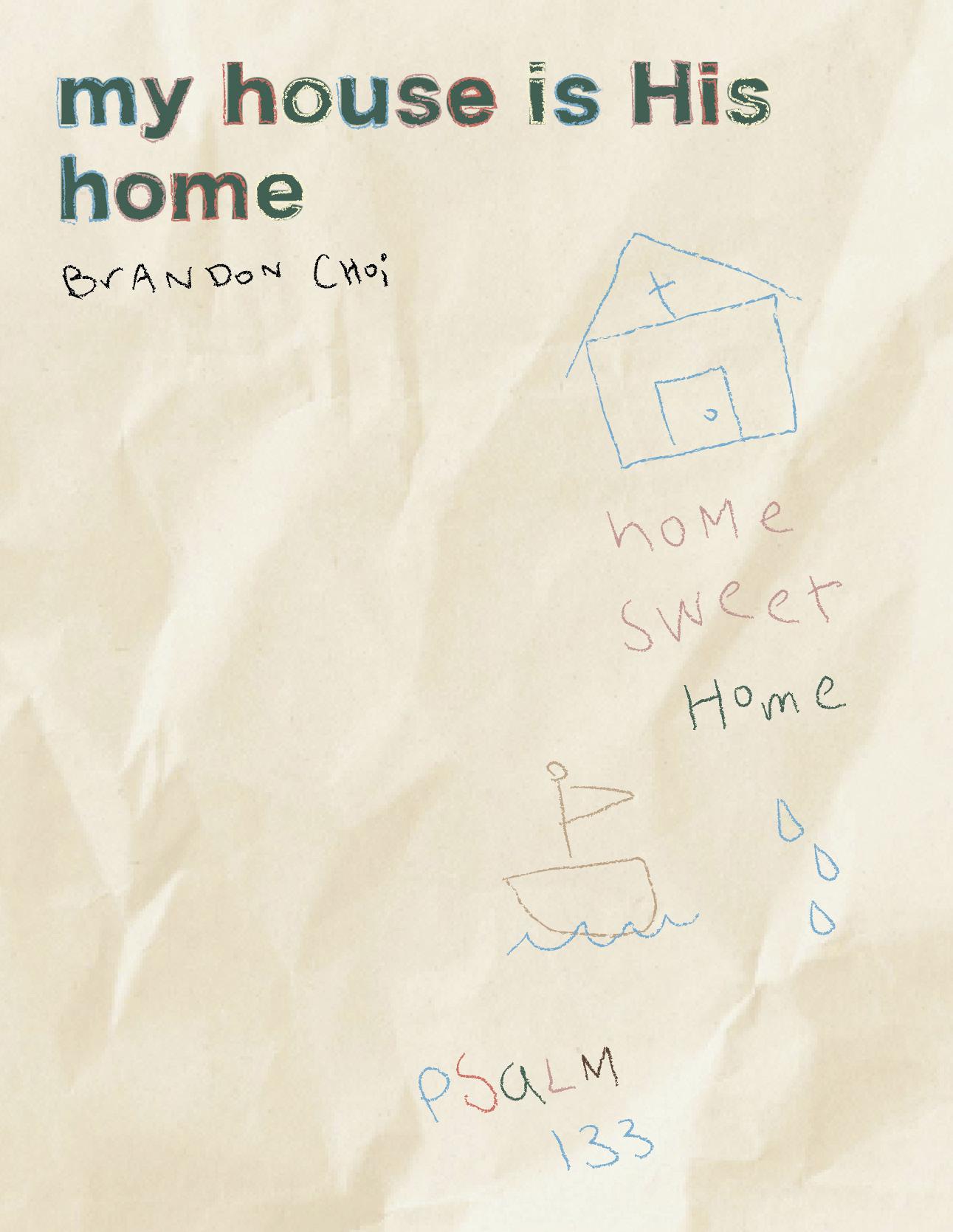
Trying to run, I fell into you, A grace I had never known. Struck down by your love, You picked me back up And taught me how to love.
Take heart, my daughter, as I walk with you. Step onto my feet and I’ll show you how to move
A dance like no other, I felt free in your arms As I learned to sway in your grace. Your whispers of love prompted my steps As I stumbled, lost, in a newfound faith.

Look up, my child, as I show you the way. There you will find Him, an embodiment of perfect grace.
Father, my path is not straight. He was blameless and perfect Yet I am struggling to keep faith. I’m trying to dance, letting him lead me to the light, But my heart is heavy and hope is out of sight.
Hold tight, my daughter, as I walk with you. When your world looks dark, let me guide you. I am oh so near. Open your eyes and my presence will become clear. You can find the will to carry on in my embrace of grieving hearts I am in your mother’s breath, giving her the strength to move on. I carry the burdens of your heart and the pain of your father’s ways, Showing you what it means to be loved and to love them with grace.
Step by step, I’ve learned to sway in your grace. It’s a dance so beautiful, a simple carriage of faith. You’ve shown me what it means to be loved, every step of the way. You are my peace when he’s left, my strength to smile when I see her face. You are the sweet voice in a song, wrapping me in a loving embrace.



Oh, how can you love me so? When I stumble, you catch me. When I forget how to dance, you reteach me. Yet, I fear your deep love, for it is pure and true. I still try to run.
Take heart, my daughter, as I walk with you. He is my son. You are my daughter. I sent Him, for I so deeply loved you.

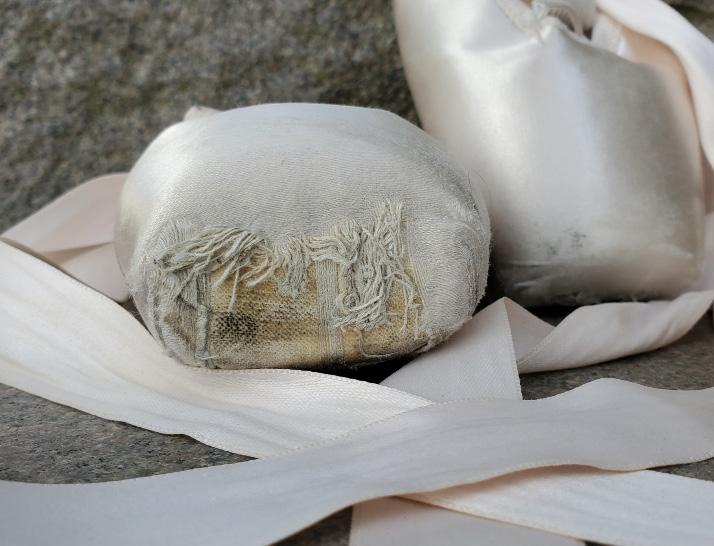





As a kid that grew up in a Christian household, attending church was part of a routine. I followed my parents to church every Sunday and Friday purely to please them. This was until I became a sixth grader and it was time for my first-ever retreat. My church had semi-annual retreats for the middle and high schoolers where we would have the opportunity to unplug from the world and focus on our faith. I personally did not want to go, mainly because I did not know many people and I had no intention of furthering my walk with God. However, my parents signed me up and nudged me into the bus that was headed towards the cabin. On the way to the cabin, I did not have anyone to talk to until one of the teachers walked up and sat next to me. We started to talk, and I learned that there was a tradition that on the last day, the parents would come make food for the kids and pray with them as well. Once we got to the retreat site, we had to turn in our phones, so before we got there, I called my parents to see if they would be coming. They gave their reasons, but nothing else came into my head — the simple answer was no. At this moment, I felt abandoned because my parents sent me on this retreat where everyone seemed like a stranger, and they were not going to come either. However, I was already there and couldn’t turn back, so I went through the routine once again. This was until the last night of retreat when all the parents were there. I could hear them praying with their children around me, and I was just sitting there, helpless. Suddenly, I felt a big hug from behind. I assumed it was just a teacher giving me a hug. But after a few minutes of prayer, when I looked back, it was my dad there hugging me. Emotions stirred up and tears rolled down my face. Through the warmth of my dad’s hug, I truly found that God loved me. All my life, I heard that God loved me, but I never really knew what it meant until now. In my most weak and vulnerable state, God ensured that He truly loved me through this surpris ing embrace.

“Whoever does not love does not know God, because God is love” (1 John 4:8, New International Version)


Iknew God’s love was real. However, I struggled to really embrace it. All throughout middle school and high school, I fostered a passion for basketball, and in doing so, it shifted my focus away from God. I identified as an athlete, and there were many times when it contradicted my identity as God’s child. This was until my senior year of high school, when I had to step away from the sport. I was faced with many injuries that never fully healed due to pressures from my coach. This coach also publicly humiliated me to make me lose weight and always told me that I was not good enough. Two games into my senior season, with my mental health being shaken up, I knew it was the right time to step away. However, there was a void in my heart once the sport I loved had been put on hiatus. The pause button on my basketball career gave me the time to really reflect on what was important to me. My Friday nights were free now, and I was able to attend Friday night prayer meetings at my church. This gave me a safe place and time to reflect on how my life has been and where I was headed. One night, about halfway through my reflection, the song “Run to the Father” started to play. The lyrics, “My heart needs a surgeon, My soul needs a friend, so I’ll run to the father again…” reminded me of God’s unending love for me once again. Tears started to roll down my cheek. I was trying to fill the void with something in this world, but the answer was right in front of me. God was waiting outside of the door of my heart, patiently waiting for me to accept His love. God put a stop to basketball to remind me that basketball should not be my identity. I was given a second chance to play at Oxford-College, and this time, I used it as an opportunity to praise God. God was the reason why I even had the chance to play in college.


Expanding God’s Love Over and over, I had been shown God’s love through multiple encounters and experiences. Throughout my spiritual journey, I had been slowly able to build my identity in God. But the moment I heard the devastating news of my friend passing away in an accident this past year, the world spiraled. The progress I built was broken, and I started to question why God had let such a bad thing happen in my life. Why did my friend have to die? If God’s love was unending, why did He give pain to people? So for many weeks, I started to re-question what the purpose of life was. Life was too short to not live out our mission of being a disciple in the world. As a believer and God’s child, we are called to bring people to God. Even to this day, thinking of my friend brings grief, but he knew God and believed, so I know he is in heaven laughing with Him. While I am here in this world, I hope to be God’s messenger to the people around me. With a precious life gone, I cannot help but see the value of everyone’s lives. Life can be taken away in a blink of an eye. Even though I struggle at times, I hope to live by God’s love and share this love to the world. I’ve been blessed with many encounters, such as my father’s hug and the lyrics of a song, and I hope to be that encounter for others as well.


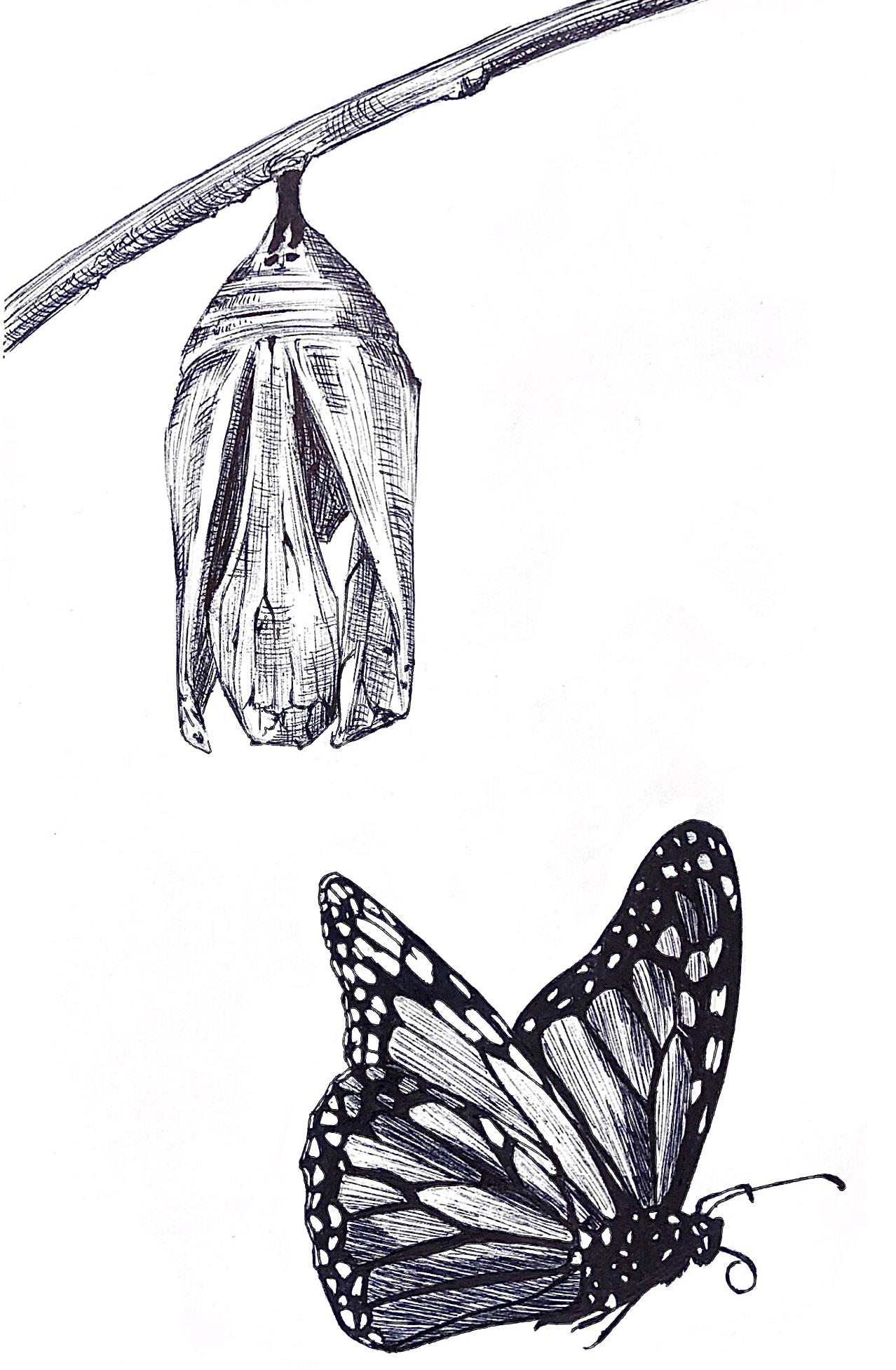
“I have fought a good fight, I have finished my course, I have kept the faith:” (2 Timothy 4:7).
Many Christians have finished their race of faith, and many more, including myself, are still on their way. Christians battle against sin and worldly temptations daily, and we sometimes wonder how we even started to fight in the first place. We look at where we are now, how much we matured and grew over time, and yet many of us cannot pinpoint the exact moment our journey started. While it may be for some, most of our faith origins are not
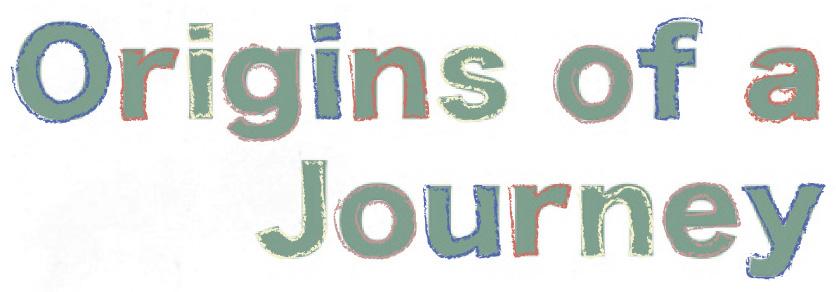
some spectacular show that completely captured our soul and led us to devote our lives to Jesus. Instead, they are a series of small increments and steps where we tested our relationships with Jesus to determine if we trusted him enough to help us up when we fell. For those whose origins feel confusing, the door to start believing in Christ is open – my origin is very ambiguous as well. Through the exploration of my origin, I learned three major lessons as I spoke internally with Jesus.
The first idea I grasped was that struggle allows one to be reminded of Jesus and ultimately learn more about him. I suppose to understand where this perspective came from, I would look back to where I tentatively started my belief in Christ: my rebellious teen years that were full of questions. During this time when I did not properly study the Bible, I found the seemingly contradictory verses to be very irritating. For example, I remember reading that “if you were of the world, the world would love you as its own; but because you are not of the world, but I chose you out of the world, therefore the world hates you” (John 15:19). This was a verse I had to memorize in church Sunday school and it was particularly conflicting for me. With Christians being called to express kindness, compassion, and charity, I did not understand how a person practicing those qualities could be rejected from a world that looks favorably on the
same characteristics. Even more so, I couldn’t seem to find the logic in openly wanting to be hated by the world. Many times I struggled to understand the Bible, failing to understand the language spoken and the hidden messages lying underneath. Soon, Sunday school felt like a fiery intellectual battleground; I questioned the pastors, the teachers, even students my age, on specific passages and phrases, all in an attempt to expose discontinuities that could throw them off and reveal the confusion of the biblical language. Sundays changed from a day of learning to a day of questioning as I constantly played the devil’s advocate role in attempts to find any misinterpretations in the Bible and try to corner opposing arguments into claims of blind faith. Even outside of church, I was constantly preoccupied by these thoughts and struggled to find any answers. Within my own youthful arrogance and the desire to be proven right, I approached the Bible in the wrong way. While mentally toiling over ideas beyond my current reasoning, I came to learn my second lesson: communicating with God cannot be forced, it can only naturally happen. 1 Kings 19:11-13 tells the short story of how the Lord is not in the powerful wind nor the earthquake nor the great fire. Instead, he “came [as] a gentle whisper”. These verses made me realize that to learn and to debate is not achieved through domination, but communication. Hearing God does not require absolute peace, as symbolized and inferred from the story, but it does require a direct way of communication and time. One cannot hear Jesus directly in his own voice, in fact very few in all of history ever have. One can, however, wait. My origin of communicating came in times of desperation, when my feelings of despair were expressed. The way Jesus spoke, though sometimes cryptic, was through ideas. One of the biggest questions I have asked God was that if God really had no weaknesses and was absolutely omnipotent, why wasn’t he able to control us directly? Didn’t that completely negate his “all-powerful” claims? If we humans were the one thing that God could not control, was he really God? I held onto this idea as one of my most powerful arguments until a single phrase came to my mind one night:
“Could he?”
Are we really uncontrollable by Jesus, or did he choose to give us a choice? While wrestling with this shocking question, in my high school senior year English class a single quote from
the book A Clockwork Orange brought clarity: “What does God want? Does God want goodness or the choice of goodness?” This unbelievable revelation was given to me not through force, but through a desperate desire to understand. Three years of mental fluster began to make sense after a single quote, and I was left in complete shock. What I felt afterwards wasn’t pride – it was a sense of “so you were right, God''. But this wasn’t felt in a defeated manner, like a math teacher explaining a miscalculation, but rather, relief. Instead of conflict, a bridge had now been made between me and God.
People sometimes ask me why I am a Christian. Even rarer, people ask me why they should become one. After all, being a Christian in the modern world is countercultural because we are called to live, act, and believe much differently than others. Personally, I am a Christian because I want to build a better relationship with Jesus. I realized that understanding him would lead me to untouched wisdom and better knowledge of why the world operates the way it does through insights on how Jesus himself works. This choice led me to a third lesson: God does not promise an easy journey, but he promises that he will walk through it with you. God being beside me at all times does not mean that he immediately takes action nor supports everything I do. In a way, he is like a parent who lets his child learn through their own mistakes and yet, covers for them when the present danger is too harmful. As for why others should become Christians, I acknowledge that I am simply a messenger of the gospel. I only share my story in hopes that it will spark a curiosity in others to provide Jesus with the opportunity to speak to them as he spoke to me.
May God bless you. Even if you are hesitant, your origin is your origin. You don’t have to search out a heroic path among the Christinan community. I hope that you can open the door to the Holy Spirit, and seek a personal relationship with Jesus.
Head.
Heart. Shoulder. Shoulder. Head. Heart. Shoulder. Shoulder. It’s a rhythm I was trained in for years, every day before class, before a meal, before the freedom of the end-of-day bell. It became muscle memory, like riding a bike. The ritual lost its meaning, becoming little more than a motion. Head, Heart, Shoulder – Father, Son, Spirit.
Will you come and follow me if I but call your name?
Will you go where you don’t know and never be the same?
Will you let my love be shown? Will you let my name be known, Will you let my life be grown in you and you in me?
“

I never felt like I had to believe anything. I always felt comfortable having a different opinion. I never had to feel scared that I would be judged by students or faculty if my beliefs were different.”
“I felt like I always had someone looking out for me no matter what - who knew every struggle I went through and saw every part of me I was ashamed of and still wanted the best for me”
Every corner of my school was notched with age and art, the eyes of silent statues watching my every move. I remember their names: Peter, Paul, Mary. All day, they sat and watched the world in front of them. For some, they are eyes of judgment. For others they are eyes of compassion and comfort. But for most of us they were just art, silent and dead, that aren’t worth the effort to think about.
After all, I didn’t have the time to give them a second thought - school coursework is tough. And the socializing and extracurricular activities and applying for college were on my mind. At church, I went through the motions I had been given since birth, until I saw the faces of the bored students around me. It felt silly - belief was a game we played as kids, not something that we needed as adults.
Will you leave yourself behind if I but call your name?
Will you care for cruel and kind and never be the same?
Will you risk the hostile stare should your life attract or scare? Will you let me answer prayer in you and you in me?
“It provided a foundation for my morals - it also provided me with a great sense of community”

“I wish I didn’t have to experience the sadness that comes with the possibility that my marriage might not be blessed under the church. My sexuality was never an
issue in the church I grew up in. However, I feel that coming out to my extended family about a marriage would be a lot easier if it was blessed. I could still have that connection with them.”
As I got older, I recoiled from the way peers were questioned for who they are. I learned to watch what I said and wrote. I heard the stories of my peers called into an office. One for a skirt that was a half inch too short, another for a haircut that was half an inch too long. At times, identity can be a very dangerous thing, and it was best to keep it guarded. The religious rules were enforced inconsistently, and it made them feel meaningless. No one really cared about them either - as soon as the final bell rang we were just teenagers again, doing what we wanted when we wanted.
One of my closest friends often told me about the unwelcome and piercing comments they would hear in school and at home. Each day they’d wake up and be told that who they are was wrong, or insufficient. They could find no solace in the cold statues they passed every morning. The pain of my peers meant more to me than some silly statues - I thought that I could fix it, could make it better, could do something, anything that involved more than just being there.
I went through the rituals and rhythms I had played since childhood, and every day they seemed to ring hollower. Every day I grew more cynical. My friends, after all, were real – their pain and anguish so much more tangible than the stoic statues I passed each day. As a child, I assigned meaning to those statues just because I was told to. But, now, in the midst of the pain around me, where were they? All these decorations, and still no one seems to care. Each day I heard about the Gospel, the “Good News,” but no one around seemed particularly joyful. Apathy abounded, and for most people the statues just faded into the background, silent, forgettable, and depressingly mundane.
So, I abandoned them – they are wood, nothing more. I traded the spiritual for the physical, finding meaning in the world around me, in the things I am talented at, in the things that I think make me happy. I made friends with
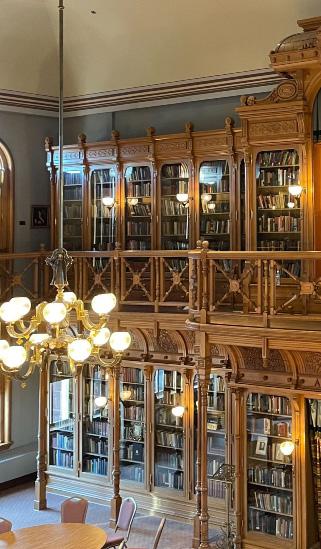
people who I think have everything figured out, and hoped that somehow, they would help me figure my life out too. Yet somehow, I found myself still unhappy. No amount of club trophies or awards could stop the wave of sorrow, anger, and fear that washed over me. The new foundations I tried to build for myself without faith disintegrated. My new friends felt the pressures of life as much as I did, and suddenly they vanished like ghosts. School was ending, and the stress of it all shattered relationships left and right. The expectations of my life pressed ever harder, and I found myself falling, falling, falling. I could not hold myself up. I never could. Now there is no rescue, no help, no hope.
Will you let the blinded see if I but call your name?
Will you set the prisoners free and never be the same?
Will you kiss the leper clean and do such as this unseen, and admit to what I mean in you and you in me?
“I always had the option to believe in something else”
“It was hard to hear about sacrificing all of myself to others, and not that much about taking care of myself”…I love that I have gained more spirituality since I was confirmed*, but I regret losing some of my religiousness due to my ever increasing workload”
Time felt like it was going by faster than I could control. I found myself rejected from college, from clubs, from communities, from friends, as the false persona I had
tried so desperately to build failed to measure up. I felt so, so alone, but I had no choice but to press on. Each day I felt pressured to not let my guard down. Every bad test score became a personal flaw; every broken friendship became another spot on my record. I had no room for mistakes, because the standards I had been thrown into were so terribly high. I couldn’t find comfort anywhere. And still those statues watched me, every day. With nothing left to do, I started to watch them back. I surrendered. I gave up. I quit. I had failed, and there was nothing there for me. I was alone.
Will you love the “you” you hide if I but call your name? Will you quell the fear inside and never be the same?
Will you use the faith you’ve found to reshape the world around, through my sight and touch and sound in you and you in me?
“I was never forced to believe anything…and I believe this is a crucial reason why my experience with everything has been so positive”
Growing up going to church on Sunday and having a mom who taught me was nice because I felt I always had someone looking out for me no matter what”
I looked up through a haze of tears. There was no one there. Except, of course, the ever frozen statues. They haven’t moved in each since the beginning. They have not moved, and that makes them unique in my new world full of the temporary. I was at my weakest, most deplorable, most despicable state. I felt that the rest of the world wanted nothing more to do with me. Yet the statues stayed, impassioned and unmoved. Silent shadows in a stained glass silhouette, watching a kaleidoscope of color create a scene of wondrous beauty. I had nothing to offer them, but it doesn’t matter. They demand nothing from me. They’re just…there. Silent, yes, but still there, reaching out and listening. They embrace me for my brokenness. I cannot hold myself up. I could not prove that I am enough. And yet, for the first time, I wondered if I may not need to.
For all these years their hands supported me; their songs guided me, step by step. They will be there for each step, no matter how long it takes me to reach the end. Maybe I never will. Maybe that’s ok. Maybe it’s more than ok – maybe it’s perfect.
For a moment I am again as a child. Frozen nights curled up in a blanket–my world no further than my bedroom door. All at once it feels like the stories I were told as children take on new meaning. All at once every motion and ritual feels precious, because they tell me that I am still here. Life has not beaten me down yet. I have no expectations, ambitions, or achievements. And that’s ok. It’s ok.
Perhaps the way I had been shown was not the Way at all. In their silence and presence, the statues spoke louder
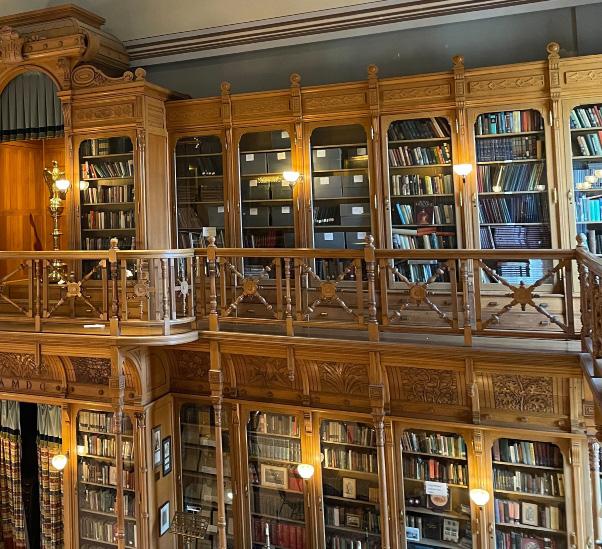
than those years of speeches ever had. I am not alone - there are others with me– those who stepped back over the path despite their pain. I am a voice in a chorus, a dissonant, disorganized, disagreed, and beautiful chorus, resolved not to let the faith of the past fade in obscurity. What humans made harmful in His name, He made healing. What humans had made dead in His name, he made beautiful. What humans had broken in His name. He has made us whole. We may not know the way - we may not want to follow it - but it does not change the fact that it is a part of us. Some see it as a curse, or as a fact to be forgotten, but I wonder if it is a blessing - a chance to know the mistakes of our forebears, and use them to change our own futures
I am someone who cares I am hopeful I am a wanderer We are loved
The world changed. Our passions changed. Our friends changed. We changed. He did not change. The statues, firm and unbroken against the wind of the world, have eyes that are as attentive as ever. The soaring stained glass had lost none of its majesty. I have grown, and yet I am again loved as if I were a child. Helpless and guarded. Feeble and supported. Broken and loved. Lost and resolved. The pain of those around me has not diminished, and they still struggle beneath the cold hand that raised us both. The world is harsh and unforgiving. It still demands so much from us. He demands nothing. My pain and helplessness are not to be feared or hidden – they are the vessel of Someone who loves me so very much – unconditionally and forever. I have the freedom to be vulnerable; the freedom to be imperfect. The freedom to forgive. The freedom to be forgiven. The freedom to be loved.
Lord your summons echoes true when you but call my name. Let me turn and follow you and never be the same. In Your company I’ll go where Your love and footsteps show. Thus I’ll move and live and grow in you and you in me.
I was raised in Catholic School since I was 4 years old. Like many, faith after 5th grade was nominal at best. I was lucky enough to, at my most apathetic, find religious ceremony to be little more than an annoyance. I had friends who were not nearly so lucky, and their suffering, whether in Catholic school or in a Christian household in general, drove them away with immeasurable hurt. Religion became something frowned upon in my social circles, and my attitude reflected that. As I grew up, as my circles fractured and my life took a downward turn, it was my return to faith that saved me from a terminal spiral. Of the friends I had, some also returned to faith and some didn’t. Regardless, we all shared and were shaped by the same Christian background as many students on campus, even if many of us no longer hold to it. The quotes featured in this piece alongside the narrative come from individuals who have varying experiences with the same background, and are Christian today. It is my hope that this piece can provide a means for students who share that background to reach back on parts of their past they had forgotten, and perhaps find the peace of Christ that had been hidden for so long.


Every Sunday morning, I wake up and get on my church’s van to Georgia Tech’s campus or a local church in Atlanta. Regardless of which location we are at, service starts the exact same way: with praise. Praise is a key part of every service. When you visit almost any Christian church, you will engage in a time of singing to God for his goodness and unconditional love. While I love to sing as much, or probably even more, than the next person, throughout my walk of faith, I have wrestled with the concept of using my voice and music to show gratitude to my Father in heaven.
Growing up, I took dance classes, and my mother, being the typical do-it-all parent she was, signed me up for the praise team before I could even process who God really was. These songs, designated for younger, elementary school students, were peppy and included jumping, lifting our hands, shouting, and twirling to match our excited, youthful energy. As I grew older, body motions were taken out of the equation, and the songs began to tap deeper into the character of God. I became more aware of the intention of praise, and as my mother became less controlling of my extracurriculars, it became my choice to either continue on praise team or join the congregation during worship.
It was during middle school that I began to better understand what God had done for me. It was also during this time that I began to understand the concept of pride, and how it was possible that I had been standing up on the stage every Sunday for all the wrong reasons. Each time I was chosen to sing on a set, I became fixated on what my peers would think of my “performance” and worried about what I sounded like. My attitude towards
praise would change based on if I belted out the high notes perfectly or if I missed an entrance of a verse or chorus. God challenged me to break down the confidence I had in my abilities through the upperclassmen leaders who leaned not on their musical capabilities, but rather on God’s ability to touch His people through music, even if the band was not sounding its best.
I vividly remember one of my pastors comparing our role as the praise team to that of a glass wall. While we were the individuals who orchestrated praise, we were not meant to be seen. Rather, it was our job to be transparent mechanisms through which members of the congregation would see God’s love and experience His holiness. I had been viewing myself and my performance as the object of my praise and not God, who was the real reason why I, as a Christian, should have been singing every Sunday.
With this revelation, I confess that I still struggled to let go of my performance-based feelings. I genuinely felt emotionally closer to God and blessed when I praised Him, and I knew that God loved me no matter how well or poorly I sang, but I still cared about if I had delivered musically. My inability to completely surrender to God had consumed my mind. I questioned if I had the discipline and devotion to serve in such a public capacity. To only further complicate my predicament, I wondered if the emotional churning and contentment I experienced during praise were derived from my security in Christ or my natural human response to carrying out a beautiful tune.
I speak of the mental battles I had with understanding praise and my experiences on praise team to not only recall the origins of my faith but also illuminate the fact that the origin of God’s mercy stems not from our own doing




but from His grace and steadfastness alone. While God has blessed me with the opportunity to serve, he has also provided me with clarity during this time in which I have been able to focus on my religious journey without the responsibilities involved with being on a praise team. As I went back and forth in my decision of joining the praise team for my college ministry, I contemplated how members of a praise team can better serve their community and learned so much about my own faith. Throughout this process, I reached three conclusions that changed my perspective on my role as a daughter in His kingdom and, more importantly, God’s perfect, whole nature, as the Redeemer who is deserving of more than anything I can think to offer him.
I praise God because the Bible commands believers to do so as stewards of his goodness. King David writes, “Praise the Lord! Praise God in his sanctuary; praise him in his mighty heavens! Praise him for his mighty deeds; praise him according to his excellent greatness! Praise him with trumpet sound; praise him with lute and harp! Praise him with tambourine and dance; praise him with strings and pipe! Praise him with sounding cymbals; praise him with loud clashing cymbals!” (Psalms 150:1-6, English Standard Version).
In just these six verses alone, believers are told to praise God eleven times. Furthermore, King David encourages God’s people to lift up their Creator with a myriad of instruments and courage. Not once does the text mention anything humans can do as a reason behind why believers praise.
I praise God because it is my instinctual desire as a sinner who is blessed by a merciful Father that has planned out every detail of my life. The prophet Isaiah
writes, “O Lord, you are my God; I will exalt you; I will praise your name, for you have done wonderful things, plans formed of old, faithful and sure” (Isaiah 25:1).

God has not only paved the way for me, but He has done so at the beginning of time. He established the origin of my faith and the direction of my life before I was conceived in my mother’s womb. Because God is holding me in his hands, making all things work for my good, I cannot help but lift songs of praise to Him.

Finally, I praise God because there is no better way to spend my days waiting for the Savior to come. King David writes, “Because your steadfast love is better than life, my lips will praise you. So I will bless you as long as I live; in your name I will lift up my hands” (Psalm 63:3-4).
My whole life, I had felt guilty about finding emotional comfort in singing to God, but I have come to learn and realize that this is a necessary and vital part of what makes me a daughter of a perfect Father. It is natural to find happiness and security in the hands of such a loving, perfect Father. Leading praise has kept me accountable in my spiritual walk and taught me so much about discipline. Even this internal battle I’ve had with singing as a means of giving thanks to God has only brought me closer to understanding the heart of my Savior. I pray that I will continuously find happiness and emotional conviction when I sing to our perfect Father and that my private, intimate devotion to Christ will parallel my love for praise.
Life is intentional. Life has a purpose. My mother always used to tell me that if I was given life, I was given a purpose: “Chris, it’s your duty to find and achieve your purpose on Earth.” The older I get, the more I understand my purpose in this world and how needed it truly is. My earliest childhood memories were in a vibrant West Indian church in Brooklyn, NY. My mind has engrained the sounds of our worship, and our distinct way of singing. The voices of the worship team would ring out through the service to our calypso and reggae versions of old classics. The sound was like no other, but it was the sound I knew. I had not known it yet, but this sound would stick with me forever.
It wasn’t until I was thirteen that I found my own voice.
I remember sitting in choir rehearsals and consistently being overlooked songs. I had always wanted to sing, but because I was so young, there were always others that were chosen instead of me. I speak with a lisp, and words were hard to pronounce because I had a heavy tongue. People often said it was hard to understand me, so I didn’t dare to think of singing. Because of that, I always looked in the other direction when songs were being chosen. It was never going to be me, so I sought out other ways to fulfill my purpose. I knew that I loved to help people. I loved to serve my community and that is exactly what I did. I volunteered with the church and locally in my community to help get rid of the disappointment that followed me as a result of seeing people in need.
Purpose is so interesting because God uses your passions and talents as a way to give Him glory. What are you passionate about? Who do you love and what for? How do your passion and talent show The Father’s love for people?
I knew that I wanted to serve people, but I never knew in what capacity I was called to do this. Serving in food kitchens, and volunteering to give things away did make me happy, but there was still an emptiness within me because I just didn’t feel like I was doing, just yet, what I was called to do.


Have you ever done something for so long thinking that, eventually, something would click and you would finally fall in love with it? I struggled with that feeling, but I now know that those days of serving in kitchens and at tables had an impact on the way I view my calling. In the process of discovering your purpose, at time it may feel like wastes of time. The Father never wastes the opportunities that we are given, and neither should we. The opportunities to serve in those kitchens and to give back to my community fortified my heart for people. It gave me the ability to speak to people in need and to see beyond the superficial facade that they may present to get through life. I always had a one-track mindset about what need looked but The Father had to teach me, before showing me my purpose, that all different kinds of people would need me whether they wanted to show it or not. These experiences opened my heart to giving and serving.
When The Father ordains us for certain roles, He puts an order in our lives. David was a shepherd but was truly called to be a warrior. Years and months of time with the Lord developed him to be certain of his capabilities in war. Isn’t it funny that instead of asking for armor and a sword, David’s question was “What will be done for the man who kills this Philistine and removes this disgrace from Israel?” (1 Samuel 17:26) There is so much strength in knowing our purpose in God. As we continue to reach the understanding of our purpose, we will find our experiences make us powerful and one of a kind. The Father’s intentions for us are not to be the same. The Father will reveal to us the deeper meaning of our purpose so that he can use us in more than one way.
My music director eventually gave me a chance to lead; he and I both finally saw the potential for me to do more. The time I spent developing and learning this purpose to serve and help assisted my realization that I can use my passion for
soul healing. Coupled with my ministry of music, I developed a voice and began to see patterns in my ministry. The Father gives us chances to open ourselves to Him for greater use and purposes. The more confident I was in singing, the more God was able to use me. The more I leaned into what God called me to do, the more He expanded my borders. The Father uses our testimonies to heal others. I testify through my songs and experiences. I find it amazing that the breath that He gave me is the one I use to bless Him and bless others. God uses my gift to give freedom to people’s hearts and minds.
But I remember not thinking I was worthy enough. I remember feeling uncertain that my life had a purpose. I remember believing that I was incapable of being used anywhere but in my local Caribbean church; yet, The Father is so intentional about where He places us in different seasons because I needed to be in my local storefront church to get the nurture that I needed. I identify with Moses because he too doubted his capabilities. He knew he wasn’t the greatest speaker because he stammered when he spoke. God didn’t take it away from him, He provided his brother to speak for him. While I may not have been as lucky as Moses to have someone sing for me while I get the credit, I did gain something to help me with my journey. I speak with a lisp and my voice is one that doesn’t sound very ordinary, so it definitely doesn’t take eyes to know that it’s me. I struggled trying to find peace with that sound, but my little storefront church family helped me grow a confidence that would follow me to college and to my church life here in Atlanta. It was necessary for me to be there to see any growth in myself.
Walking in my purpose means that The Father is getting my full attention out of my life. I could have doubted my abilities and my purpose, but The Father called me to be more. My doubt wouldn’t mean that I was no longer capable, it would mean that I was stopping myself and the Father from getting the Glory out of my life.
You have a purpose on this Earth. The Father intentionally breathed into you as a means of ensuring our hearts would continue to find home. Every breath we take is a form of worship for him. With every inhale and exhale, we speak his name. Develop an identity in Christ through your passions and giftings. Paint your canvas; sing your song; write your poem; dance your dance; feed the homeless; share resources with those in need. Your purpose has a meaning. We aren’t all called to speak to nations and magistrates, but we are called to people. In the same way, you may have needed me to say this; someone is waiting to hear you say something, or do something that will impact their life. What is your purpose? How will you develop that purpose?



My faith journey started out like many others. My parents are Christian and as my siblings and I grew up, they took us to church every Sunday, prayed with us every evening, and woke us up every school day with the Christian radio. To be honest, I really enjoyed those days. Despite all the Sundays where I woke up grumpy, not wanting to go to church, I always left in a much better mood (after I got some breakfast, of course). If I could turn back the clock and go back to that time, I would. I was, and still am, proud to consider myself a Christian. My parents emphasized the importance of showing God’s love through our actions, and my mom had us finish quoting Matthew 5:16 as she dropped us off at school: “Let your light shine before others, so that they may see your good works and give glory to your Father who is in Heaven” (Matthew 5:16, English Standard Version). During this time of my life, I considered my faith to be my own. I was aware of other religions, and the lack thereof, but chose to remain in Christianity. However, when looking back, I realize I had not gone through a moment that really tested my faith. That test was to come later.
It turned out that “later” was to be sometime during my senior year of high school. What seemed to be out of the blue, in the middle of the night, I started to have a really bad existential crisis. I had the thought that one day, I was going to die and no longer exist. It wasn’t going to be a stranger. It wasn’t going to be someone I know. It was going to be me. I told myself that first of all, Jesus may come back before I die. Secondly, even if he does not, I will be going to heaven after I die, so it doesn’t matter. To make my anxiety even worse, my brain started wondering if there even was a heaven. If God was even real. I started to imagine what it was like not to exist. I remember breaking down in tears, trying to calm myself
down by saying these thoughts were from the devil, and that if the devil was sending them, then God had to be real because if God wasn’t real, neither was the devil. It didn’t work. I was sitting in my bed, arms wrapped around my knees, trying to rock myself into some sort of calmness. I then heard a series of voices in my head.
“Go talk to your parents.”
“No, don’t do that. You’ll just be bothering them and they’ll probably get annoyed with you and think you’re just being dramatic.”
“Go talk to your parents.”
Reluctantly, I got out of my bed and slowly made my way downstairs to my parents’ room. Fortunately, my parents were still awake, and they could immediately tell something was wrong. Still crying, I explained to them the thoughts that were

vol. 3, no. 1
going through my head and asked if they could pray with me. My mom and dad, being some of the kindest people on this planet, immediately got out of bed and prayed with me.
The next day, I asked my parents if they could pray with me again. They agreed, but this time, my mom gave me her devotional book about peace. They told me I had to do my part and read my Bible along with praying for these thoughts to go away. Following their advice, I looked over the verses in my mom’s book and kept praying day after day. While I did feel like I was making progress, I was still scared of dying. As a result, instead of just praying for the thoughts to go away, I prayed that God would show me a sign of his existence — something I would not attribute to mere coincidence.
A couple of days later, as I was getting ready for my day and listening to the K-love app to feed my spirit and strengthen my relationship with God, I suddenly became curious about their daily Bible verses. I remember thinking it would be funny if the verse they had for that day was related to my situation. To my surprise, it did — as did the ones from the past couple of days. They were all about trusting God, staying strong, and continuing to read His
Word. I remember sitting down and crying as my prayers had been answered. However, despite this experience, I continued to ask God to show Himself to me again in a way I could not attribute to coincidence.
Throughout the week, I had a strong urge to go to church. That Saturday night, I went to bed and my desire got stronger. I set my alarm, which is something I never did on Sundays, as I would instead rely on my parents to wake me up. However, this time, I felt what I now believe was the Holy Spirit telling me to go to church. I asked God which pastor He wanted me to see, and He answered with my youth pastor. I fell asleep that night thinking it would be funny if my pastor had a sermon on exactly what I was going through. In what should not have been a surprise to me, he did. His sermon that Sunday was on monsters. He preached about taking your thoughts captive and what happens if you don’t. He said you have to be proactive in taking control of your mind, and you cannot expect them to go away if you do nothing. After the sermon, I went on to do just that. I continued being proactive in reading my Bible, praying, and going to church, and sure enough, the existential crisis ended. I saw my pastor’s sermon as the sign I had been looking for. It helped me get a sense of closure, along with being proactive in strengthening my faith.
While I would never wish this experience on anyone, as I do not think I have ever been so scared in my entire life, I do believe it was a vital step in my path as a Christian. Along with reading my Bible and praying, I continued to look for God in other ways, such as through apologetics. This experience strengthened my faith and truly made it my own. I believe it was a time when I was born again and became even closer to God. While I sometimes struggle with existential thoughts today (although they are not as bad), I always look back on this part of my life and remember what I accomplished. I remember the time God revealed Himself to me, and I find peace in it. I remember the origin of the strengthening of my faith.

Conversion is often conceptualized as a dramatic and sudden change in someone’s life. Perhaps this is the allure of autobiographies; they are often a recounting of a person’s life before the pre-converted character becomes the converted narrator. Still, because the protagonist of autobiographies and the narrator are nonetheless the same person, I wonder what could be lost if too much is emphasized on the conversion itself, rather than focusing on the things that lead up to the grand moment in an autobiography. Perhaps viewing conversion as a lifelong process instead of a single instance offers a more complete picture of what it means to become Christian.
In his famous autobiography, Confessions, Augustine recounts the change in his life from his former ‘sinful’ ways up to the moment of his conversion in a garden as he was led by a spirit to ‘take’ and ‘read’ the writing of Paul. Upon picking up the Bible, he dramatically flipped to a passage that reads, “Not in carousing and drunkenness, not in sexual excess and lust, not in quarreling and jealousy. Rather, put on the Lord Jesus Christ, and make no provision for the desires of the flesh” (New Revised Standard Version, Romans 13:13-14). In this dramatic tale where he realizes his sins, and consequently repents after the experience, the reader may be led to believe that Augustine suddenly became a new person; however, this tendency to focus on one’s new life can lead a person to lose sight of the ways that one’s former life continues to impact the converted narrator.

One of the greatest sins with which Augustine struggled was lust and sensuality. Throughout his life, he constantly craved the attention of a woman, participating in a host of committed monogamous relationships, moving from a 15year relationship with an unnamed Manichean woman to a concubine for two years while he waited for the young wife his mother had arranged for him to grow old enough to become his wife. One can see his struggle to let go of his former habits as Augustine (397) writes,
But I, wretched young man that I was– even more wretched at the beginning of my youth– had begged you for chastity and said: ‘Make me chaste and continent, but

not yet.’ I was afraid that you might hear me too soon and cure me too soon from the disease of lust which I preferred to be satisfied rather than extinguished (p. 164).
Here, the inner machinations of Augustine’s heart on his road to conversion are revealed. Augustine, having realized his fault for lusting over his obsession with the erotic, found himself at that time preoccupied with his former self. Though the truth and his salvation were both arising like the sun on the horizon, he feared going toward his newest revelation because he wanted to continue sinning.
In Augustine’s conversion, he overcomes his former sin of lusting after sex and replaces his sinful desires with a desire for God. He erotically proclaims his love for God in the garden scene where he finds his true love for God and reads the passage in the garden. In the iconic scene, he recounts how “All I had to do was to will to go there” when he described his attraction towards Jesus (p. 166). In saying this, his faith is exposed as more about performing ‘Christian’ actions instead of being solely based on faith.
Instead of being saved by grace through faith, he seems to prioritize his piety through his actions by describing the way that he must will himself to God. Perhaps the incessant distaste he proclaims for his former self is due to the way that he could not let go of his sexual desires. Even though Paul writes that it is better for a person to be married than to burn with passion, to Augustine, total sexual renunciation was the way to prove to God, through his actions, that he was devoted to Him. Still, in giving up his former self, he felt that salvation was achievable by his own efforts — ‘willing’ himself to find the truth in the garden. In this way, Augustine’s conversion appears to be works-based and not entirely spiritual after all. Instead, it proves Augustine wanted to be in control of his own life by pursuing God on his own and proving that he was above his sexual desires.
Augustine’s tendency to eroticize something leads me to wonder if we are truly able to let go of our former selves when we convert. He may have let go of his physical and sexual pleasure on Earth, but he replaced this sin with an erotic longing for God. This dissonance of a converted
person continuing their legacy of craving the love of another leads me to wonder if his conversion was as revolutionary as we often view it, as he remained committed to lusting after something, even if his new lust was for something holier. Perhaps the memory of our former sinful ways leads us to salvation, as our sinful tendencies do not magically disappear when we are dunked in water and commit our lives to Jesus. In this way, instead of conversion being a onetime affair, conversion is a daily process. He needed to daily reject his former lust and put on Christ each day.
In the same way, we are called to pick up our cross
and follow Him. This requires a daily reorientation towards Christ. While Augustine later chooses a lifetime commitment to chastity because his struggle with lust was the original hindrance that kept him from knowing and being in a committed relationship with God, this does not mean that Augustine was sinless for the rest of his life. He, like us, needed to choose to follow God every morning.
Conversion is an everyday process, where Christians strive towards their future life with God in heaven through a daily commitment to following Him.
